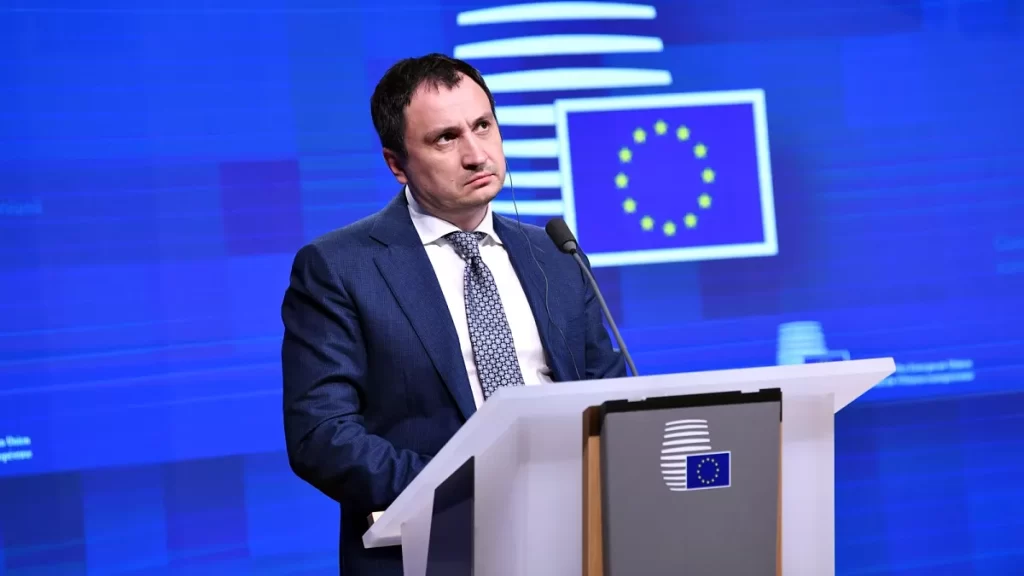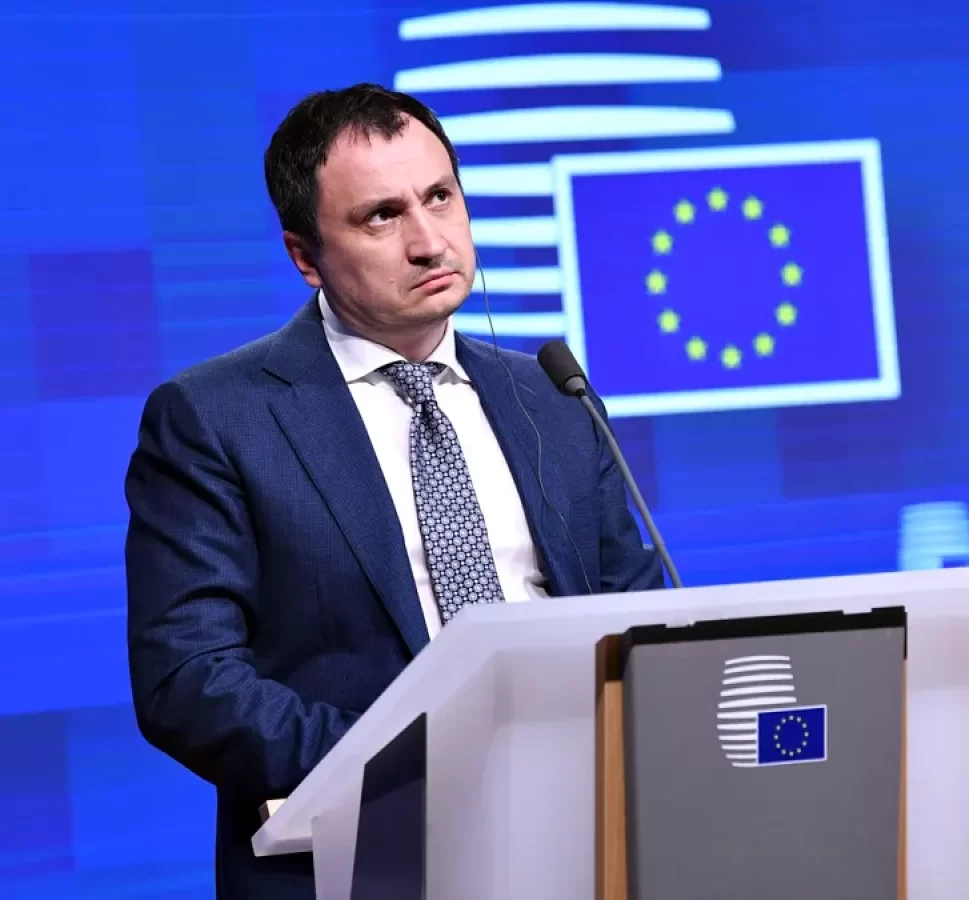
Ukraine has pledged to bolster its anticorruption efforts as part of its bid for European Union membership.
Ukraine’s Agriculture Minister Mykola Solsky has been detained on suspicion of being involved in a multimillion-dollar landgrab scheme involving state property, according to prosecutors.
An anticorruption court ordered Solsky to be held in custody until June 24, with bail set at 75.7 million hryvnias ($1.9m), prosecutors said on Friday. He could face up to 12 years in jail if convicted.
Solsky is accused of illegally seizing state-owned land worth 291 million hryvnias ($7.36m) and trying to obtain other land worth 190 million hryvnias ($4.8m).
The allegations relate to events between 2017 and 2021, before he started as Ukraine’s wartime agriculture minister in March 2022, shortly after the start of Russia’s invasion.
Under the alleged scheme, the land was illegally taken from two state firms and transferred to war veterans on the condition they lease it to some private firms, the National Anti-Corruption Bureau said.
The 44-year-old minister and his lawyer have denied the charges, telling a hearing on Thursday that he did not benefit from any such scheme.
Earlier this week, Solsky had offered his resignation and promised to cooperate with the investigation. But he will technically remain agriculture minister until parliament considers his resignation.
Solsky, who owned several farming businesses, was elected to Ukraine’s parliament in 2019.
He is the first known Ukrainian minister to be prosecuted as a suspect in a major corruption case under President Volodymyr Zelenskyy, who has emphasised clamping down on corruption and last year replaced his defence minister following graft allegations.
The agriculture ministry has emerged as a key state entity as Ukraine strives for membership of the European Union.
An agriculture minister would play a vital role in integrating the country’s enormous grain industry – which has been affected by the blocking of Black Sea export routes – into the 27-member bloc.
Solsky has been at the centre of Ukraine’s effort to keep its grain industry going in the face of Russia’s invasion which not only blocked Black Sea routes but has also seen fields covered with landmines and farmlands occupied.






